
Behind the calm, polite face of a Kyotoite is an angry woman who wants to shout at you for being so uncultured.
The concept of “wa” (“harmony“) is central to maintaining a peaceful society in Japan, and one of the ways it’s achieved is by understanding the culture of “tatemae” (a polite front you put on when socialising) and “honne” (saying what you really mean and feel, behind closed doors at home).
In Kyoto, a city famed for refinement and keeping old traditions alive, displays of tatemae are on a whole other level, earning a moniker of their very own, known as “ikezu“. Literally meaning “unable to go any further”, ikezu is Kyoto-speak for “mean” (as in a “mean person”) and describes the local culture for keeping others, usually those from outside Kyoto, at a distance by using expressions that conceal their true intentions.
Take the comment “You’ve got a really nice watch“, for example. While most people might feel flattered by such a compliment, if it’s someone from Kyoto saying that to you, you might want to think again because that’s Kyoto-speak for “This conversation has gone on too long.”
▼ That’s such a nice watch you should take a look at it and realise it’s time to go.

This technique of communicating in a roundabout way has long been cultivated in the ancient capital, and it’s generally directed at “yoso-san“, the local word for people from outside the prefecture, who often don’t pick up on what’s really being said. That’s all about to change now, though, as Kyoto-based company Nai, who specialises in creating products based around “nai” (“negative“) topics like “tsumaranai” (“boring“) and “mittomonai” (“unproper“), has released a series of stickers explaining what some of these seemingly ordinary expressions really mean.
Called “Ikezu Stickers from Kyoto People with a Hidden Side“, there are four designs in the set, with each one having a front side that shows the polite expression, and a back side that shows the true meaning behind what’s being said.
On the front of the first sticker, we have a kind and warm-hearted looking woman in kimono saying, in the Kyoto dialect, “My toilet may be uncomfortable to sit on, but feel free to use it if it pleases you.”
“How nice of her to humbly offer me the use of her toilet!” You might be thinking. However, turn to the “ura” side — “ura” can be used to mean both the “reverse side” of something or “hidden side” of someone — and you’ll find what she’s really saying.
▼ “You’re not gonna stand and urinate, ok?”
That’s a big difference in meaning that not everyone will be able to pick up on, and the look on the woman’s face says it all. The stickers have an adhesive strip on the back, making them easy to attach to places around the home where such sayings might be appropriate, and there’s even one for the mailbox that reads: “I apologise for only having a small letterbox. Sorry for your trouble.”
As you may have guessed, this is not a humble apology for the size of the mailbox. What it really means is: “Don’t stuff my mailbox with unnecessary flyers.”
At the entrance to the home you can post this sticker, which reads, “Welcome. My, my, you’re dressed in your Sunday Best — have you been to Lake Biwa?”
Don’t be fooled by the kind smile and flattery — what she means to say is: “Don’t enter this establishment in unkempt clothes.”
Finally, we have a message for the dining area: “Did you know? You don’t have to slurp soba noodles in Kyoto for them to be delicious.” The true meaning here is: “Don’t be a noisy eater.”
The model that appears on each of the stickers is Rie Ohnishi, who is actually the fourth-generation owner of a traditional fan shop in Kyoto. She’s gained a large following online, not only for her looks and business, but for her ability to make weird faces.
▼ This ability, combined with her background in Kyoto-style hospitality, made her the perfect model for the job.
Speaking about her work on the series, she said:
“I think everyone who was born and raised in Kyoto has been baptised with ‘ikezu’. There is a theory that ‘ikezu’ was developed to maintain good relationships in Kyoto, where it is not uncommon for people to be neighbours for hundreds of years. I used my facial muscles to the best of my ability to express the ‘ikezu’ that the people of Kyoto would relate to. I just pray that I will not be ostracised by the people of Kyoto and Shiga for this. I hope that they will view it with an open heart.”
We can’t speak for the people of Kyoto, but we certainly don’t hold a grudge against Ohnishi for helping to reveal the finer details of Kyoto culture that would otherwise remain a secret amongst locals. If anyone in Kyoto does have something to say about it, though, we’re sure they’d find a roundabout way of telling her, maybe by complimenting her on her large group of friends or musical talent.
If you’d like to spread the word about ikezu, the stickers can be found at select souvenir stores in Kyoto (listed below), priced at 800 yen (US$5.35) for the set of four. While most stores will sell them on the sales floor, Ohnishi’s shop will be selling them only to customers who tell her the following secret message: “ura mo omote mo okirei dosuna” (“both the back and front are beautiful”).
Sales Locations
・Saga Arashiyama Bunkakan (11 Saga Tenryuji Mangunobaba-cho, Ukyo-ku, Kyoto City, Kyoto Prefecture 616-8385)
・Kyoto Souvenir Uramatsu (548-3 Nakano-cho, Shijo Kamiru, Shinkyogoku-dori, Nakagyo-ku, Kyoto 604-8042)
・Kaze no Eki (176-2 2F, Futagami-cho, Kamigyo-ku, Kyoto City, Kyoto Prefecture 602-0828)
・HOTEL MUSO (678 Ishifudono-cho, Shimogyo-ku, Kyoto City, Kyoto Prefecture 600-8047)
・Ryokan Koro (114 Horinoue-cho, Nakagyo-ku, Kyoto Prefecture 604-8117)
・SecondDesk Kitaoji Horikawa (14-2 Murasakino Nishigoshoda-cho, Kita-ku, Kyoto City, Kyoto 603-8165, Kyoto Prefecture)
・SHOPpeaberry (307−1 Imayakuya-cho, Kamigyo-ku, Kyoto City, Kyoto Prefecture 602-8025)
・Ohnishi Tsune Shoten (23 Hontoro-cho, Shimogyo-ku, Kyoto City, Kyoto Prefecture 600-8086 Takakura Nishi-iru)
Related: Ohnishi Tsune Shoten
Source: PR Times via Net Lab
Images: PR Times unless otherwise noted
● Want to hear about SoraNews24’s latest articles as soon as they’re published? Follow us on Facebook and Twitter!

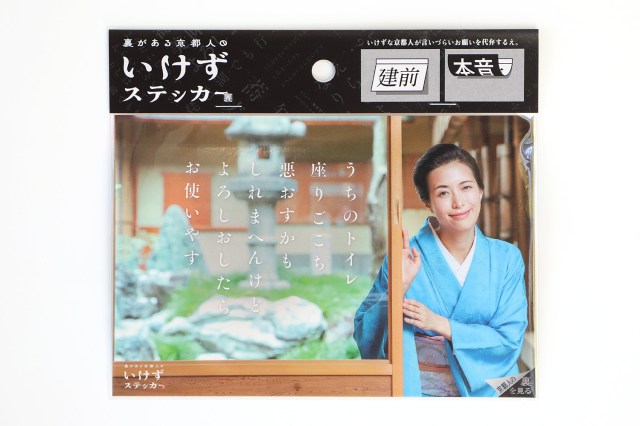

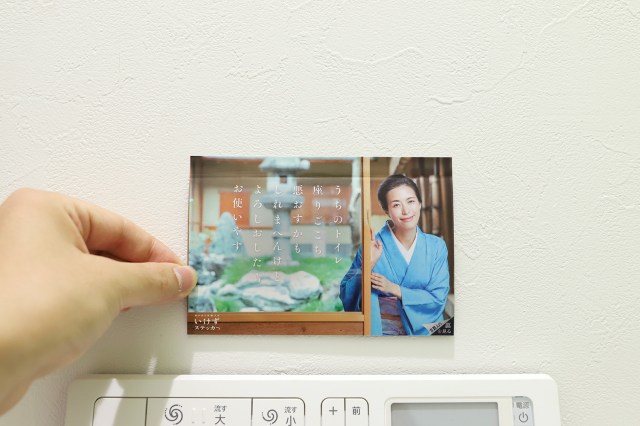
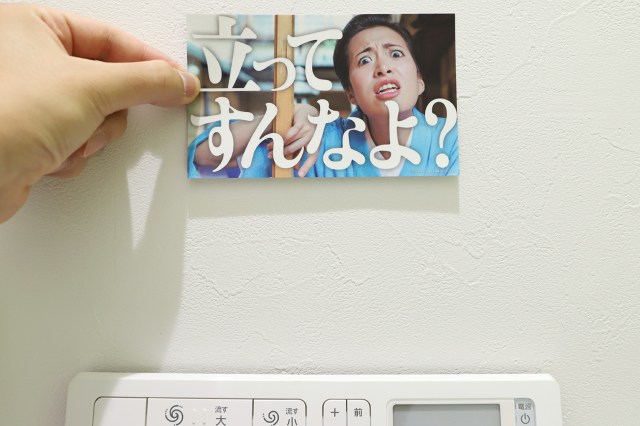
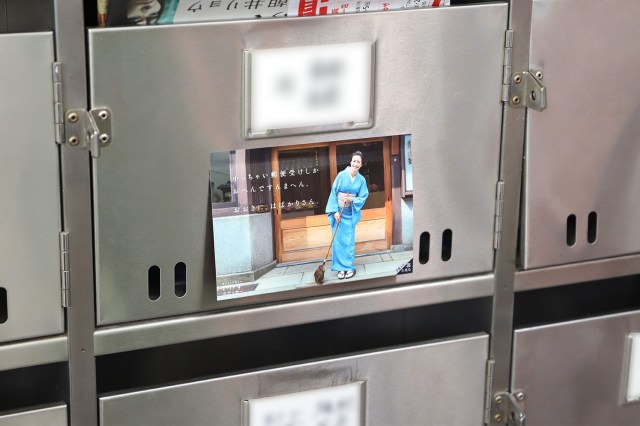
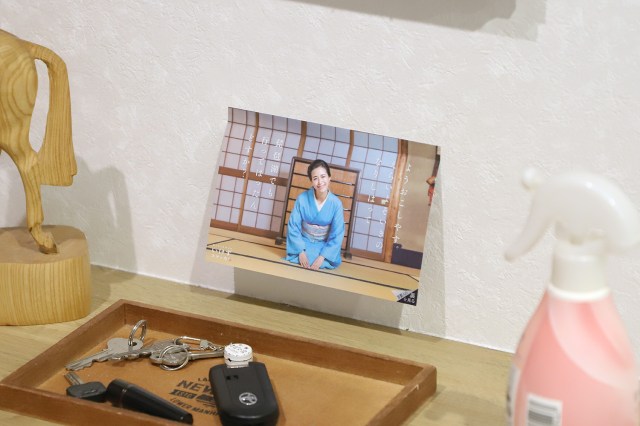



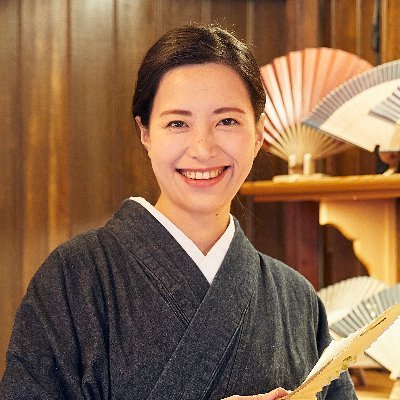
 How do you say ‘Google it, you trash’ in British English? Answer surprises many in Japan
How do you say ‘Google it, you trash’ in British English? Answer surprises many in Japan Kyoto code cracked? Japanese bartender translates Kyotoites’ compliments into hidden insults
Kyoto code cracked? Japanese bartender translates Kyotoites’ compliments into hidden insults All we want for Christmas is to stay in the new Mimaru Hotel Pokémon room, opening Dec 24
All we want for Christmas is to stay in the new Mimaru Hotel Pokémon room, opening Dec 24 Special subway cars in Kyoto are perfect for travelling anime fans
Special subway cars in Kyoto are perfect for travelling anime fans China’s “Little Kyoto” shut down by government after complaints of Japanese culture “invasion”
China’s “Little Kyoto” shut down by government after complaints of Japanese culture “invasion” Foreigner’s request for help in Tokyo makes us sad for the state of society
Foreigner’s request for help in Tokyo makes us sad for the state of society Japanese city loses residents’ personal data, which was on paper being transported on a windy day
Japanese city loses residents’ personal data, which was on paper being transported on a windy day Should you add tartar sauce to Japanese curry rice? CoCo Ichi makes diners an unusual offer
Should you add tartar sauce to Japanese curry rice? CoCo Ichi makes diners an unusual offer Seaside scenery, history, and so many desserts on Yokohama’s Akai Kutsu【Japan Loop Buses】
Seaside scenery, history, and so many desserts on Yokohama’s Akai Kutsu【Japan Loop Buses】 French Fries Bread in Tokyo’s Shibuya becomes a hit on social media
French Fries Bread in Tokyo’s Shibuya becomes a hit on social media Ghibli Park now selling “Grilled Frogs” from food cart in Valley of Witches
Ghibli Park now selling “Grilled Frogs” from food cart in Valley of Witches Red light district sushi restaurant in Tokyo shows us just how wrong we were about it
Red light district sushi restaurant in Tokyo shows us just how wrong we were about it McDonald’s new Happy Meals offer up cute and practical Sanrio lifestyle goods
McDonald’s new Happy Meals offer up cute and practical Sanrio lifestyle goods Smash Bros. director Sakurai stabs Kirby in the face, has delicious justification for it
Smash Bros. director Sakurai stabs Kirby in the face, has delicious justification for it Sandwiches fit for a sumo served up in Osaka【Taste Test】
Sandwiches fit for a sumo served up in Osaka【Taste Test】 Japanese ramen restaurants under pressure from new yen banknotes
Japanese ramen restaurants under pressure from new yen banknotes Studio Ghibli releases new action figures featuring Nausicaä of the Valley of the Wind characters
Studio Ghibli releases new action figures featuring Nausicaä of the Valley of the Wind characters New private rooms on Tokaido Shinkansen change the way we travel from Tokyo to Kyoto
New private rooms on Tokaido Shinkansen change the way we travel from Tokyo to Kyoto Tokyo Tsukiji fish market site to be redeveloped with 50,000-seat stadium, hotel, shopping center
Tokyo Tsukiji fish market site to be redeveloped with 50,000-seat stadium, hotel, shopping center Beautiful Ghibli sealing wax kits let you create accessories and elegant letter decorations【Pics】
Beautiful Ghibli sealing wax kits let you create accessories and elegant letter decorations【Pics】 Studio Ghibli releases Kiki’s Delivery Service chocolate cake pouches in Japan
Studio Ghibli releases Kiki’s Delivery Service chocolate cake pouches in Japan New definition of “Japanese whiskey” goes into effect to prevent fakes from fooling overseas buyers
New definition of “Japanese whiskey” goes into effect to prevent fakes from fooling overseas buyers Our Japanese reporter visits Costco in the U.S., finds super American and very Japanese things
Our Japanese reporter visits Costco in the U.S., finds super American and very Japanese things All-you-can-drink Starbucks and amazing views part of Tokyo’s new 170 meter-high sky lounge
All-you-can-drink Starbucks and amazing views part of Tokyo’s new 170 meter-high sky lounge More foreign tourists than ever before in history visited Japan last month
More foreign tourists than ever before in history visited Japan last month New Pokémon cakes let you eat your way through Pikachu and all the Eevee evolutions
New Pokémon cakes let you eat your way through Pikachu and all the Eevee evolutions Disney princesses get official manga makeovers for Manga Princess Cafe opening in Tokyo
Disney princesses get official manga makeovers for Manga Princess Cafe opening in Tokyo Sales of Japan’s most convenient train ticket/shopping payment cards suspended indefinitely
Sales of Japan’s most convenient train ticket/shopping payment cards suspended indefinitely Sold-out Studio Ghibli desktop humidifiers are back so Totoro can help you through the dry season
Sold-out Studio Ghibli desktop humidifiers are back so Totoro can help you through the dry season Japanese government to make first change to romanization spelling rules since the 1950s
Japanese government to make first change to romanization spelling rules since the 1950s Ghibli founders Toshio Suzuki and Hayao Miyazaki contribute to Japanese whisky Totoro label design
Ghibli founders Toshio Suzuki and Hayao Miyazaki contribute to Japanese whisky Totoro label design Doraemon found buried at sea as scene from 1993 anime becomes real life【Photos】
Doraemon found buried at sea as scene from 1993 anime becomes real life【Photos】 Tokyo’s most famous Starbucks is closed
Tokyo’s most famous Starbucks is closed One Piece characters’ nationalities revealed, but fans have mixed opinions
One Piece characters’ nationalities revealed, but fans have mixed opinions We asked a Uniqlo employee what four things we should buy and their suggestions didn’t disappoint
We asked a Uniqlo employee what four things we should buy and their suggestions didn’t disappoint Princesses, fruits, and blacksmiths: Study reveals the 30 most unusual family names in Japan
Princesses, fruits, and blacksmiths: Study reveals the 30 most unusual family names in Japan In Kyoto, “Hey, you’ve got a really nice watch” is NOT a compliment, Japanese businessman says
In Kyoto, “Hey, you’ve got a really nice watch” is NOT a compliment, Japanese businessman says Japanese travelers are avoiding Kyoto as the city’s number of foreign visitors continues to grow
Japanese travelers are avoiding Kyoto as the city’s number of foreign visitors continues to grow Kyoto Knife Tower hopes to become city’s newest sightseeing power spot【Photos】
Kyoto Knife Tower hopes to become city’s newest sightseeing power spot【Photos】 City of Kyoto advertises the charms of living in Japan’s ancient capital using a cute tabby cat
City of Kyoto advertises the charms of living in Japan’s ancient capital using a cute tabby cat Kyoto has had enough of rude tourists, created an infographic to show how to visit politely
Kyoto has had enough of rude tourists, created an infographic to show how to visit politely See a whole other side of Kyoto in this beautiful, quintessentially Japanese train, coming soon
See a whole other side of Kyoto in this beautiful, quintessentially Japanese train, coming soon Our search for Kyoto Station’s cheapest souvenir reveals a surprisingly sweet find
Our search for Kyoto Station’s cheapest souvenir reveals a surprisingly sweet find Crepe made with Kyoto sweets and green tea is the perfect treat after a day of temple hopping
Crepe made with Kyoto sweets and green tea is the perfect treat after a day of temple hopping One thing NOT to do in Kyoto if you’re headed there during the vacation period
One thing NOT to do in Kyoto if you’re headed there during the vacation period Kyoto Animation closing donation account for arson attack victims soon
Kyoto Animation closing donation account for arson attack victims soon Nine things that may shatter your dreams of living in Kyoto
Nine things that may shatter your dreams of living in Kyoto The tricky game of wits that sometimes lurks behind a Kyoto granny’s compliment
The tricky game of wits that sometimes lurks behind a Kyoto granny’s compliment The cheapest place to stay in Kyoto cost us just 1,800 yen for the night, and it was awesome
The cheapest place to stay in Kyoto cost us just 1,800 yen for the night, and it was awesome Kyoto admits to paying celebrities 500,000 yen per tweet to talk about how great the city is
Kyoto admits to paying celebrities 500,000 yen per tweet to talk about how great the city is Names of 10 Kyoto Animation arson victims released, family and friends offer words of remembrance
Names of 10 Kyoto Animation arson victims released, family and friends offer words of remembrance
Leave a Reply